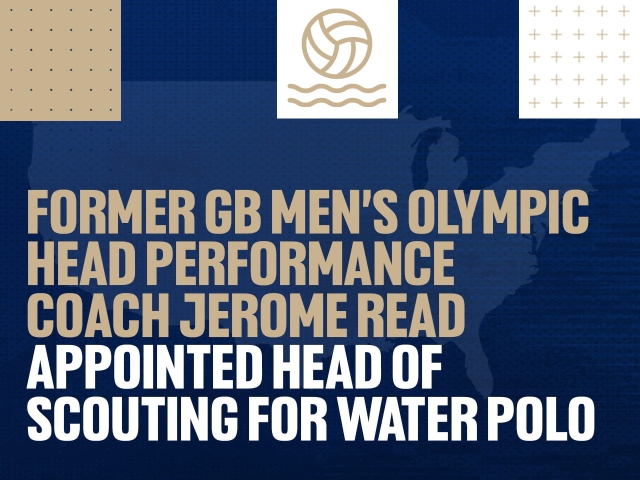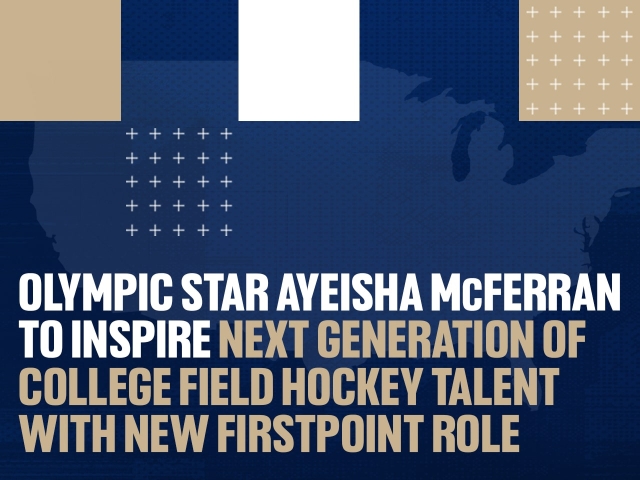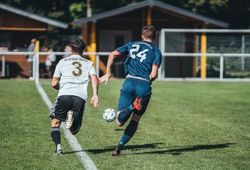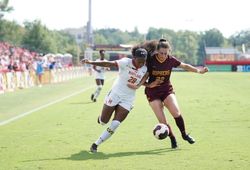As your child progresses into their senior years of high school and begins exploring their next steps, you’re likely helping them weigh up options—university, apprenticeships, gap years, or entering the workforce. But if they’re a talented athlete with ambitions to continue playing competitively while earning a degree, studying in the United States could be a unique, rewarding and life-changing path.
It’s a big decision, and as a parent, your support and guidance are crucial. Our latest blog offers insights to help parents understand the opportunity, ask the right questions, and feel confident in helping your child make an informed choice.
1. What Does the U.S. Offer Student-Athletes?
The U.S. college system is home to thousands of international student-athletes who combine high-level sport with academic study. It’s a structured environment that supports both personal and athletic development, often with access to world-class facilities, coaching, and importantly, education.
For many families, it’s a chance to give their child a broader life experience, greater independence, and a strong foundation for future career paths—whether in sport or beyond.
2. Understanding the Pathways
There are two main routes into U.S. college sport:
- Applying as a regular student, then trying out for the team once on campus.
- Being recruited by a coach, often with a sports scholarship attached.
The recruitment route is more common for international athletes and typically involves:
- Creating a sports CV and highlight reel.
- Meeting academic and athletic eligibility requirements.
- Communicating and engaging with coaches and institutions.
This process can be complex, especially across different college divisions (NCAA, NAIA, NJCAA), each with its own rules and scholarship structures. With 24 years of experience of the industry, and a team of expert staff – many who have lived it and breathed it themselves – FirstPoint USA are well positioned to help you understand these different pathways and guide you through the varying complexities of how college sport in the US works.
Parents are also encouraged to join our regular series of webinars, with guest speakers across our college coach network, admissions teams and senior staff members, who will be on hand to explain how it all works.
3. What Should Parents Be Thinking About?
Here are a few key areas to consider as you support your child:
- Academic Fit: Ensure the university offers a strong academic program that aligns with your child’s interests and future goals—not just athletic opportunities.
- Scholarship Details: Understand what’s covered (tuition, housing, meals) and what isn’t. Some scholarships are partial, and families may need to budget for additional costs.
- Eligibility Requirements: These include academic transcripts, standardized tests (SAT/ACT, TOEFL/IELTS), and proof of amateur status. Starting early helps avoid last-minute stress.
- Wellbeing and Support: Ask about the university’s support systems—mental health services, academic advisors, international student offices, and athletic trainers.
- Post-Graduation Options: Consider what happens after the degree. Can your child stay in the U.S. to work? Will their degree be recognised back home? FirstPoint can provide a variety of different case studies of athletes who have progressed onto different career paths, from playing professional sport, to working on business; staying on to coach in the US, or returning home to pursue a degree-based vocation.
4. The Academic Side of Being a Student-Athlete
While sport may be the driving force behind your child’s interest in studying in the U.S., academics are just as important. U.S. universities expect student-athletes to perform in the classroom as well as on the field, and maintaining academic eligibility is essential to keeping their scholarship and place on the team.
Each university and sports division has its own academic standards, but generally, your child will need:
- Strong high school grades (especially in core subjects like English, Maths, and Science).
- Standardized test scores, such as:
- SAT (Scholastic Assessment Test) – widely accepted across U.S. colleges.
- ACT – an alternative to the SAT, also accepted.
- TOEFL or IELTS – for non-native English speakers to demonstrate language proficiency.
These scores help universities assess academic readiness and are often required for both admission and scholarship eligibility.
How Challenging Is the Balance?
Balancing sport and study can be demanding. Student-athletes often follow a packed schedule that includes:
- Early morning training
- Classes throughout the day
- Team meetings, gym sessions, and travel for competitions
- Study time in the evenings
It requires discipline, time management, and resilience. The good news is that universities typically offer:
- Academic advisors who work specifically with athletes
- Tutoring services and study halls
- Flexible scheduling to accommodate training and travel
5. A Parent’s Perspective
John Patton, whose son Oliver is now in his second year as a Track & Field student-athlete at Oklahoma State University, shared this advice and insight:
“Start the process early. Take time to research your options. Listen to advice from those who’ve been through it. It’s a big step, but with the right support, it can be incredibly rewarding.”
“The first week Oliver was gone, I can’t lie, there were a few tears in our house. But with modern communications, we’re talking to him on Facetime every day, we know he’s in a great place, we know he’s got a good circle of friends there. The support he’s got over there with the coaches and his fellow athletes means he’s settled in very well.”
6. Tips for Talking to Your Child About U.S. College Sport Opportunities
A. Start with Curiosity, Not Pressure
Begin by asking open-ended questions like:
- “Have you thought about what you’d like to do after school?”
- “Would you be interested in continuing your sport while studying?”
This helps your child feel heard and supported, rather than pushed toward a decision.
B. Explore Together
Research the U.S. college system together. Watch videos, read testimonials, and look at university websites. This can help your child feel more confident and less overwhelmed.
Try asking:
- “What kind of environment do you think you’d thrive in—big campus or small?”
- “Would you prefer a university with a strong academic focus or one that’s more sport-driven?”
C. Talk About the Big Picture
Help your child think beyond sport:
- “What kind of degree would you be interested in?”
- “Where do you see yourself after university—still in sport, or doing something else?”
This encourages them to consider long-term goals and how sport can support—not replace—their academic and career ambitions.
D. Discuss Practicalities Honestly
Talk openly about finances, travel, and independence. Let them know you’re there to support them, but also help them understand the responsibilities involved.
You might say:
- “Let’s look at what scholarships might cover and what we’d need to budget for.”
- “How do you feel about being far from home for long periods?”
E. Encourage Resilience and Openness
Remind your child that this journey will come with challenges—new cultures, tough training schedules, and academic pressure. But also highlight the growth and opportunities that come with it.
Try:
- “It’s okay to feel nervous—lots of students do. But you’ll have support, and you’ll learn so much.”
F. Use Trusted Support
If you're working with a recruitment agency like FirstPoint USA, involve your child in conversations with advisors. Let them ask questions and express concerns directly.
Ask together:
- “What do coaches typically look for in international student-athletes?”
- “How do we know which universities are the right fit?”
7. Where to Get Support
Navigating this journey can feel overwhelming, especially if it’s unfamiliar territory. That’s where FirstPoint USA can help. With over 24 years of experience guiding student-athletes and their families, FirstPoint offers guidance through every stage—from recruitment and eligibility to placement and transition. And parental support!
Whether you're just starting to explore the idea or already deep into the process, having expert support can make a real difference.
Final Thoughts
Helping your child pursue sport and study in the U.S. is a big step—but it can be a life-changing one. With the right preparation, clear communication, and trusted support, you can help them make a confident, informed decision that sets them up for success both on and off the field.




